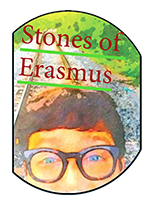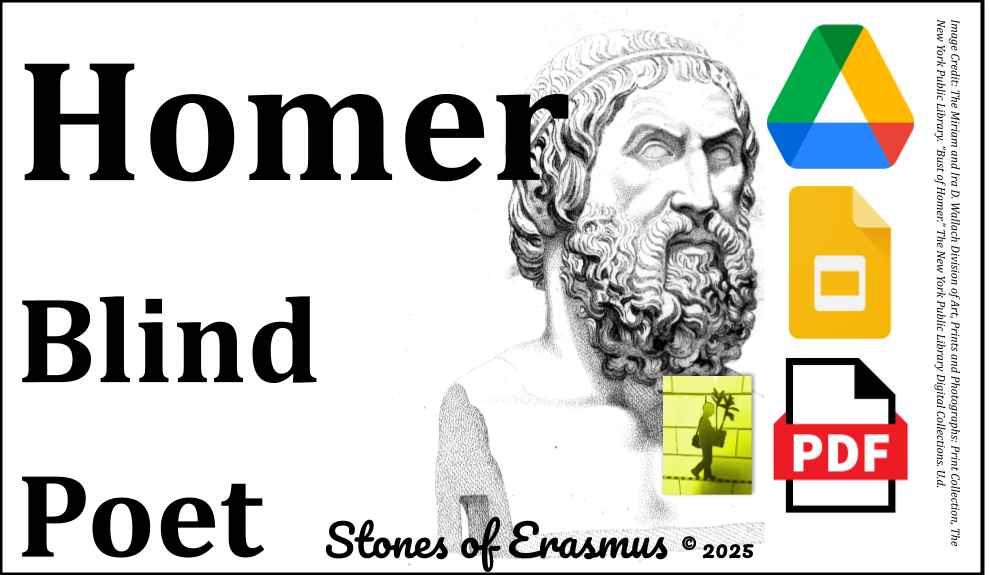About This Lesson
Who was Homer? Building background knowledge for The Iliad and The Odyssey will be much easier with an entire two-day lesson on Homer, the Blind Poet.
Teaching Homer, the Blind Poet—Homer, ancient Greece’s legendary blind poet, revolutionized epic literature with his masterful poems, still enthralling audiences for centuries. The resources, herein, are meant to greatly enhance the teaching of the epics in a middle or high school classroom. Build background knowledge before embarking on any of the Homeric masterpieces. Included is a pacing guide, reading cards, task card, and question set to create activities to prepare students on their epic journey.
This FREE! Resource Includes the Following Features:
- Access to Print and Digital Versions (PDF, Google Workspace)
- 2-Day Lesson Pacing Guide (with Teacher's Notes)
- Key Characters and Concepts Anchor Chart
- Who was Homer? (No, Not that Homer!) Orient learners by identifying the historical figures that surround the so-called homeric question. Includes a brief section on Homer as depicted in Raphael's fresco "Parnassus," (1511) in the Vatican Museums.
- 2 Reading Cards — Designed to help students build background knowledge on the literary figure of Homer, the ancient poet attributed as the author of The Iliad and The Odyssey.
- Each card is illustrated and includes the following topics—
- Homer (Ὅμηρος) (fl. 850 B.C.) (2 cards)
- Mythology of Homer (2 cards)
- Arranged from "Juventus Mundi" by W.E. Gladstone
- 1 Reading Task Card
- Embed accountability by having students work in groups to complete the reading tasks cards. Provides ample prompts to get students engaged with the informational texts.
- 1 Cornell Note-taking template
- 2 Illustrated Note-taking sheets
- 10-count Question Bank
- 1 Student Choice Exit Ticket
- Capture students' writing at the end of a lesson with an exit ticket. Provide academic choice. Students can choose from two of four prompts.
- Frayer Model Vocabulary Template
- Frayer models are a way to get kids to think about vocabulary visually in a four-section square — A square for meaning, one for examples, another for non-examples, and a sketch. Assign terms, and display students' work.
- 1 Further Reading List
- Don't disregard this further reading list if you think it is merely a bibliography. Share the list with your students or have them do projects based on the available research. Assign different sources to students and organize presentations where learning can go deeper into the story.
- Answer Keys
- Not only do the answer keys give the correct answers in the question bank, but they also address common student misconceptions that may arise and provide guidance on what to expect from student work.
I created this resource with middle and high school students in mind. It is designed for an English Language Arts or Humanities Mythology lesson in a middle or high school classroom—
- Part of a Larger Mythology Suite from Stones of Erasmus
- Use this resource to launch your unit on The Iliad and the Odyssey, Robert Graves's Complete Myths, or Edith Hamilton's Mythology.
This educational digital download supplements a unit on Greek Mythology. Special thanks to the New York Public Library Digital Collection and the Massachusetts Collection for providing a rich deposit of out-of-copyright, public-domain materials.
Email us at support@stonesoferasmus.com. Website: stonesoferasmus.com. © 2025













